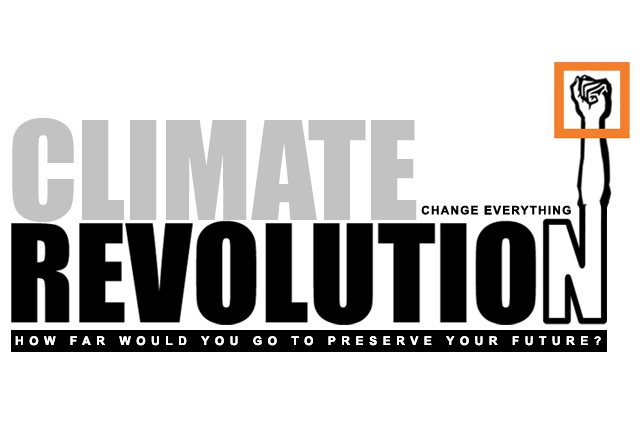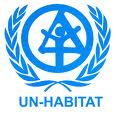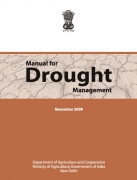/sub-categories/policies-laws-and-regulations
Policies, Laws and Regulations
Activists from the Climate Revolution dig out climate policy gaps through the Right to Information Act
Posted on 10 Jun, 2010 07:27 AM Content Courtesy: AlertNet
Content Courtesy: AlertNet
Activists from the Climate Revolution initiative in India have discovered a crucial tool in their battle to hold the government accountable on its climate policies: the country's landmark Right to Information (RTI) Act.
Read more about Climate Revolution's work on RTI on their website here.
Draft of “The Dam Safety Bill, 2010” approved
Posted on 08 Jun, 2010 06:24 PMAs per the Press Information Bureau's press release, the Union Cabinet has approved the proposal of the Ministry of Water Resources for enacting The Dam Safety Bill, on May 13 2010. The Bill is to be introduced in the Parliament.
The main objectives of the legislation are:-
• The new legislation will help the States in adopting uniform dam safety procedures which shall ensure safety of dams and safeguard benefits from such dams.
National Water Mission under National Action Plan on Climate Change: Revised Comprehensive Mission Documents - Ministry of Water Resources (2009)
Posted on 05 Jun, 2010 11:46 PMThe National Water Mission (NWM), under the aegis of the Ministry of Water Resources, is one of the eight missions being constituted under the National Action Plan for Climate Change (NAPCC). The NAPCC was launched by the Prime Minister in 2009 as a nation-wide effort to tackle climate change.
Urban Development Policy 2009 - Department of Urban Development (Government of Karnataka)
Posted on 05 Jun, 2010 04:20 PMThe Urban Development Policy, Karnataka has been developed, by the Department of Urban Development (Government of Karnataka), as a response to the challenges that are being faced by the state due to rapid urbanisation leading to:
- An increase in population in urban areas due to migration
- Increase in the number of poor residents in urban areas
- Infrastructural shortfall on several fronts
- Shortage of resources
- The challenge of ensuring the basic welfare of the poor in urban areas
- The increasing need for strengthening governance, planning and administration
Rank of Indian cities on sanitation (2009-10) - National Rating and Award Scheme for Sanitation in Indian Cities (MoUD)
Posted on 24 May, 2010 02:18 PMIn order to get a sense of the current status of sanitation in India's cities, a survey was initiated by the Ministry of Urban Development as a part of the National Rating and Award Scheme for Sanitation for Indian Cities. The methods used for the survey can be found on the Ministry of Urban Development website.
The findings and the rankings of the cities according to the survey found that the situation was grim with only 25 cities topping the list, while majority of the others lagged behind in terms of a number of sanitation parameters.
Uttar Pradesh State Government invites public opinion on Groundwater Bill
Posted on 21 May, 2010 03:04 PMIn an attempt to tackle the deteriorating ground water situation in the state, the Uttar Pradesh State Government has drafted the Uttar Pradesh Groundwater Conservation, Protection and Development (Management, Control and Regulation) Bill (2010), and has invited feedback from the public.
Comments have to be sent before 5 July 2010 by email to up.gwd@rediffmail.com or by post to this address: Director, Utttar Pradesh Groundwater Department, Navam Tal, Indira Bhavan, Ashok Marg, Lucknow, Uttar Pradesh.
The draft copy of the Act is uploaded on the UP State Groundwater Department website and can be downloaded here, and is also attached with this post.
Rejuvenation of community toilets - A policy paper by UN-HABITAT and Government of Madhya Pradesh
Posted on 20 Apr, 2010 04:12 PM The policy paper examines the condition of community toilet in terms of its infrastructure, operation & maintenance, uses and payment of user charges. The paper is a result of a joint collaboration between Water for Asian Cities (WAC) Programme of UN-HABITAT and the Directorate of Urban Administration & Development, Government of Madhya Pradesh.
The policy paper examines the condition of community toilet in terms of its infrastructure, operation & maintenance, uses and payment of user charges. The paper is a result of a joint collaboration between Water for Asian Cities (WAC) Programme of UN-HABITAT and the Directorate of Urban Administration & Development, Government of Madhya Pradesh.
In Madhya Pradesh, WAC is supporting Asian Development Bank-financed project in cities of Bhopal, Gwalior, Indore and Jabalpur to improve and expand urban water and sanitation services. This study has been taken up to monitor implementation of the water and sanitation related targets.
Water Policy in India - A brief overview: A paper by Centre for Public Policy (IIM Bangalore)
Posted on 20 Apr, 2010 06:30 AMThis paper by the Centre for Public Policy (CPP) of the Indian Institute of Management (IIM) Bangalore adds to the debate on water policy in India, and provides a general overview of the main characteristics of irrigation development post-Independence and a review of its beneficial and adverse impacts. The problems that need to be addressed and measures needed to resolve them are highlighted. It recognizes the vital role of expansion of irrigation in transforming agriculture from one of near stagnation in the pre-independence period to one of sustained growth during the past five decades.
Estimation of replenishable groundwater resources of India and their status of utilization - A research paper by CGWB
Posted on 19 Apr, 2010 09:49 PMThe paper describes the methodology used in the groundwater resource estimation and the results of the latest country-wide assessment. In India, dynamic groundwater resources are estimated jointly by the Central Ground Water Board (CGWB) and State governments at periodic intervals. The latest estimates of dynamic resources are based on groundwater resource estimation methodology-1997 (commonly known as GEC-1997). These estimations are widely used in formulating various groundwater development and management plans. The paper also discusses future strategies on groundwater resource estimations.
Manual on drought management by the National Institute Disaster Management and the Ministry of Agriculture (2009)
Posted on 15 Apr, 2010 04:13 PM This manual developed by the National Institute of Disaster Management (NIDM) presents a comprehensive approach to drought management and recommends measures that can be implemented for effective drought relief and mitigation. It brings together conceptual issues, institutional framework & operational details, and replaces the colonial famine codes written largely for dealing with hunger and starvation.
This manual developed by the National Institute of Disaster Management (NIDM) presents a comprehensive approach to drought management and recommends measures that can be implemented for effective drought relief and mitigation. It brings together conceptual issues, institutional framework & operational details, and replaces the colonial famine codes written largely for dealing with hunger and starvation.
It has been prepared with the objective of creating synergy between the various programmes being implemented to provide drought relief and mitigation by several levels of government.
The key issues covered in the manual are: